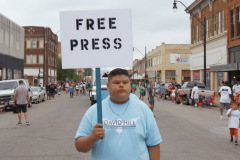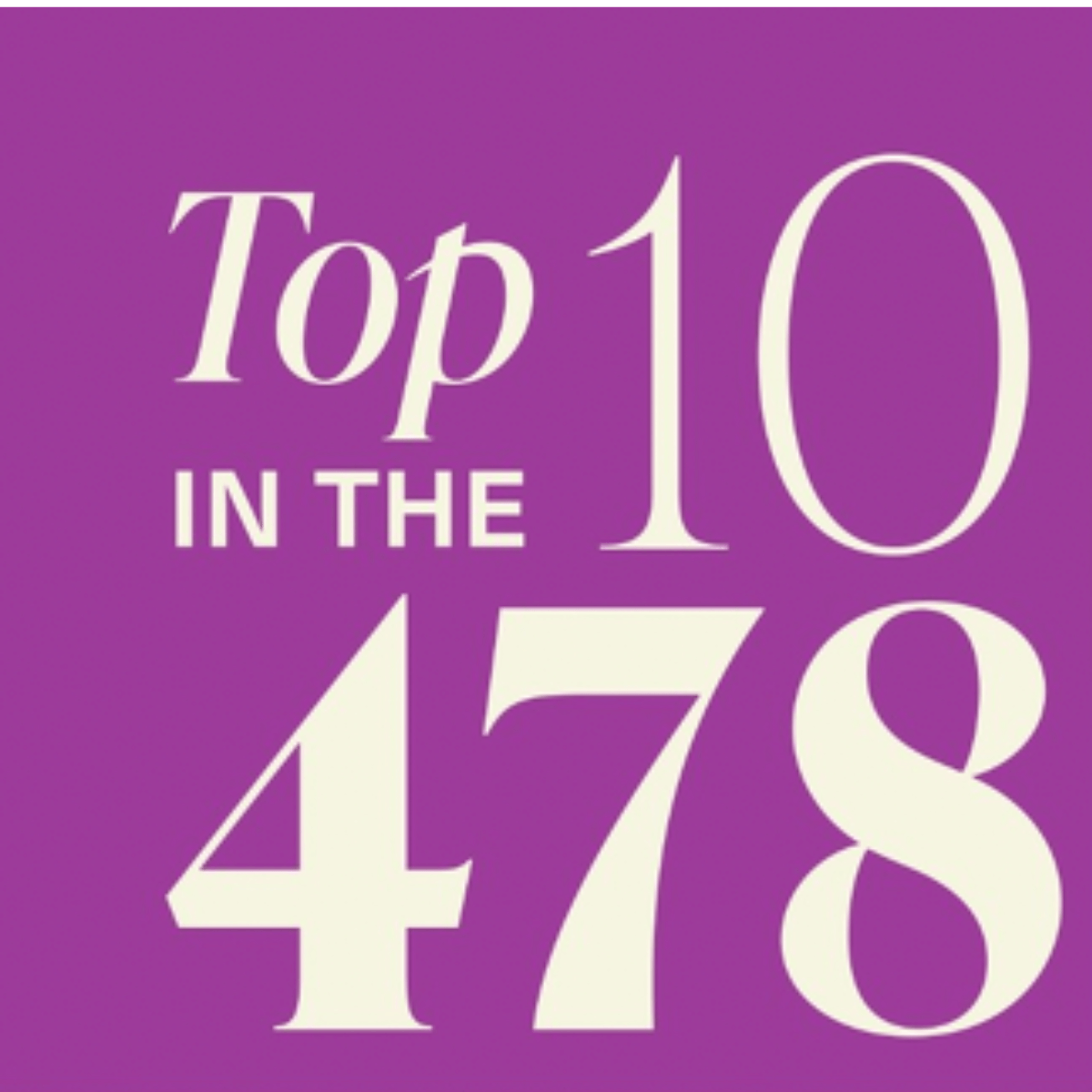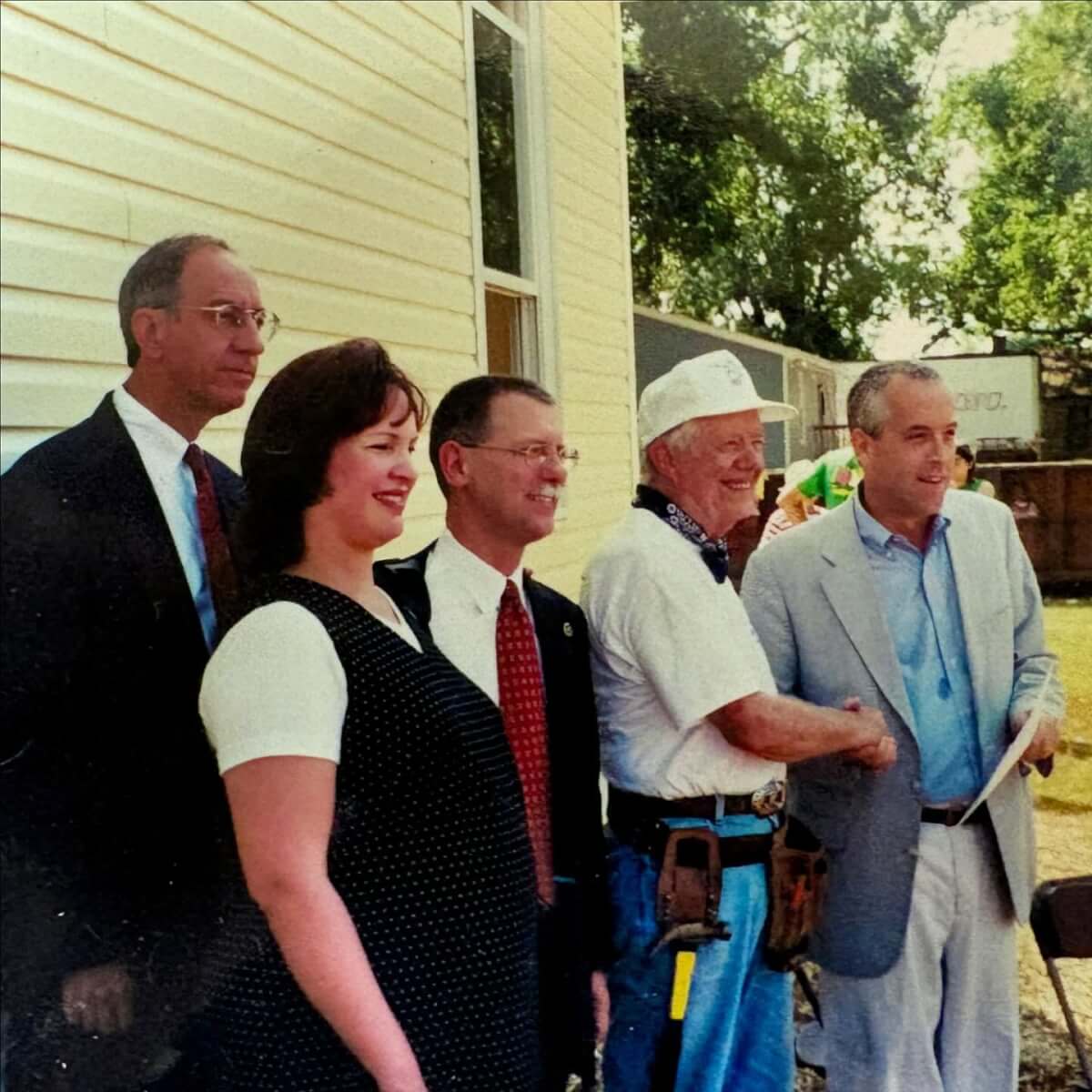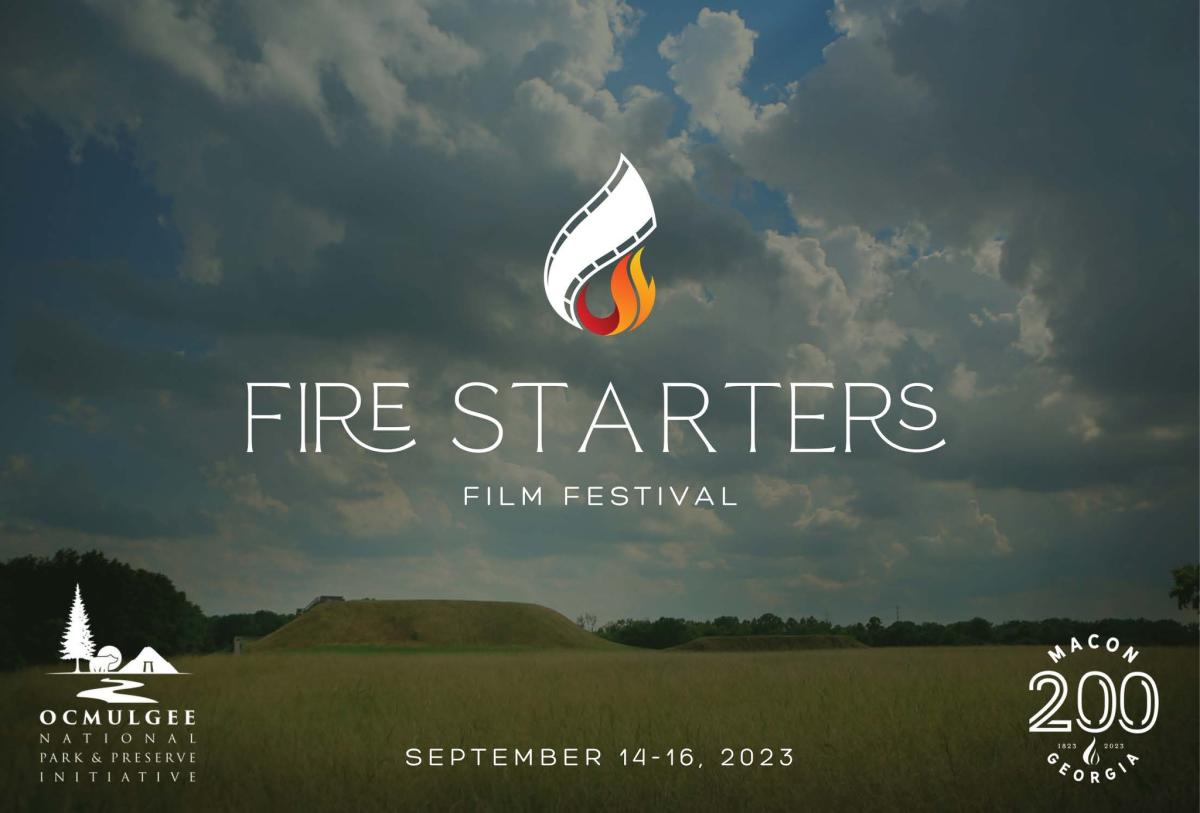
Keeping the fires burning in Downtown Macon
Modern torchbearers bring sacred fires back to the Muscogee (Creek) homelands
By Michael W. Pannell
This year, on the third week of September, there will be an expanded focus on the culture and people who called the Macon area home long before it took that name.
The annual Ocmulgee Indigenous Celebration takes place at Ocmulgee Mounds National Historical Park on Sept. 16-17 this year. Indigenous artists, craftsmen, and educators will share their cultures through music, dance, demonstrations, and more.
But the celebration expands out of the park and across the river to downtown this year. Not officially part of the Ocmulgee Mounds National Historical Park’s Indigenous Celebration, but added to the weekend as part of the deepening connection between tribal citizens and Maconites, is the Fire Starters Festival, which will feature a film festival, art exhibit, and concert that are all connected to or created by Indigenous forces.
Particular emphasis will be given to the Muscogee (Creek) Nation citizens, whose ancestral home includes the mounds and surrounding lands.
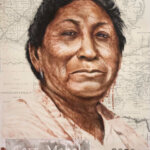
Artwork by Bobby C. Martin
A new festival to shine light on Muscogee (Creek) culture today
“The idea behind the Fire Starters Festival and its events is twofold,” said Tracie Revis, who is Yuchi and Muscogee (Creek) and served posts with the Nation’s Oklahoma-based government, most recently as chief of staff to Chief David Hill. She relocated to Macon just under two years ago to serve as director of advocacy for the Ocmulgee National Park and Preserve Initiative (ONPPI).
ONPPI is a community-based group of Middle Georgia residents and Muscogee (Creek) citizens working to see the Ocmulgee Mounds National Historical Park expand and become Georgia’s first National Park and Preserve.
“First, Fire Starters is a way to bring about awareness that what is being celebrated at the Indigenous Celebration isn’t something that just happened within the confines of the park,” Revis said. “The idea is to do something downtown is to illustrate that our presence, our home, was much more widespread. We’re excited to celebrate traditional culture, but we want people to realize we’re not just an historical fact. We’re a living, breathing, contemporary people – still alive, still creating, still a vital part of modern culture. To help do that we chose to create a film festival with art and music to show the contemporary side of our life.”
The Fire Starters Festival will feature Indigenous filmmakers, many of them Muscogee (Creek), such as Mark D. Williams (“The Journey of Tiak Hikiya Ohoyo”) and Rebecca Landsberry-Baker (“Bad Press”) and visual artists Randy Kemp and Bobby C. Martin in an exhibit coming to The McEachern Art Center (The MAC) called “Ocmulgee to Okmulgee.”
Featured Fire Starter Events
The Fire Starters Festival begins Sept. 14 with a reception and artist talk at 6 p.m. at The MAC at 332 2nd St., followed by a film screening at The Grand Opera House.
The musical highlight comes Saturday, Sept. 16, at 8 p.m. when the Indigo Girls come to town to present a benefit at The Grand to support ONPPI efforts. The Grammy-winning duo of Georgia natives has long been known for their activities benefiting causes including Indigenous rights and environmental justice.
The evening, dubbed “Ignite the Night” by ONPPI, also features Georgia blues artist Jontavious Willis. Tickets are on sale now at thegrandmacon.com.
Welcoming the present, reconsidering the past
Lisa Lemon welcomes the new activities. Lemon isn’t an official spokesperson for the Ocmulgee Mounds National Historical Park but is executive director of the volunteer, membership-supported Ocmulgee Mounds Association (OMA), a community-based auxiliary organization providing resources to support educational programs at the park and help operate such things as lantern light tours, children and adult programs, and the annual Indigenous Celebration. The OMA operates the park’s gift shop.
“We welcome the Fire Starters Festival,” she said. “We welcome it because anything that deepens the connection between the Muscogee (Creek) Nation and Macon and Middle Georgia – their traditional homeland before being removed to Oklahoma – is a good thing. As I see it, it doesn’t compete but enhances what’s going on at the park during the Celebration. It means those coming from Oklahoma and elsewhere to take part and provide demonstrations and goods at the Celebration will be able to go to the movies and activities. Artist Randy Kemp has been here to the park, but Bobby C. Martin hasn’t, and we’re arranging a tour of the mounds for him and others coming to participate. For many, it will be their first visit to the sacred grounds where their ancestors once lived.”
Julia Morrison is director of arts marketing and community engagement for The MAC, The Grand, and other Mercer University arts programs and venues. She’s also a Fire Starters co-founder and member of the Macon200 committee, the group steering Macon’s bicentennial celebration.
“I will say, for the bicentennial there’s a big corrective push for a lot of our history and its interpretation,” she said. “For instance, during the centennial in 1923, there were a lot of false and racially traumatizing propaganda put out in the name of history, and we want to be reparative of things like that towards greater reconciliation. The Fire Starter Festival is a signature bicentennial event, and we’re glad to get behind it.”
Though not part of the 18-year-old Macon Film Festival (MFF) held each August, MFF co-founder Tabitha Walker said she and the MFF are helping by offering advice and expertise. She said Macon loves films, so the more the better, and that she personally welcomes the event and its stories because of what they can add to Macon and Muscogee (Creek) understanding.
And to Revis, that all points to what she considers a main goal for the event.
“It’s my goal we get a wide variety of people who maybe grew up going to the park but don’t really realize there’s a modern Muscogee (Creek) Nation at home in Oklahoma,” she said. “Maybe they know people once lived there but it’s just some vague history, not real people whose ancestors are alive today just like they are. I want people to walk away with a bigger picture of what Indian Country is and who we are now.”
In headlines, you see the not-unimportant fact that efforts to enlarge and reclassify the park will bring greater preservation of the sacred lands plus, in time, a potential annual $206 million boost to local economies. And it can pump as much as $29 million in additional taxes yearly into Macon-Bibb County.
Bringing new, sacred fires to the homelands
Consider that with the unjust and illegal history of Indigenous removal in Macon, with many uncomfortable symbols still existing on the land today and local people unaware of the painful history, that a visit to the homelands could be both joyous and sorrowful. Revis’s work underscores the complexity of creating reconciliation in 2023.
“Given this was the mother ground of our people, the capital of our nation, the place our sacred fires were established and then carried off to Oklahoma from knowing we could never return or physically move our fires back – and given until not too many years ago it was literally on the books in Georgia that it was illegal for a Muscogee (Creek) citizen to even be here – given all that, what we’re seeing today is remarkable,” Revis said.
Hence, the name Fire Starters signifies not bringing the old fires back, but remembering and starting new ones.
“Starting a conversation between Muscogee (Creek) people in Oklahoma and those who live here now and building community together for the good of all is an almost unheard-of thing. We’re figuratively restarting the fires,” she said.
The presentation of Indigenous films showing contemporary life with its issues, goodness, and foibles is part of that conversation starter. So is presenting artwork by Muscogee (Creek) artists. Revis said she’s an advocate for the preservation of the park and its growth, certainly, but also an advocate for her people and their story.
Seth Clark is a Central Georgian having grown up initially with only a vague awareness of what the then-called “Indian Mounds” were all about. Clark is also Macon-Bibb Mayor Pro Tempore and County Commissioner and serves now as the executive director of ONPPI.
“The history and story of those mounds and the people who lived here long before we were here – and what happened to them – is deeply embedded in who we are and part of our story, too,” he said. “I’m so glad to be alive at this amazing point in time when there’s a reconnection. And not just a reconnection but a welcoming back. It’s a story I want millions of visitors to Ocmulgee Mounds National Historical Park to know.”
With plans to involve the Muscogee (Creek) Nation as co-managers of the park and see a Muscogee (Creek) cultural center established in the historic DeWitt McCrary house on Hydrolia Street, the story – good and bad – will have an ongoing platform for the telling.
But some would say the modern story is best told in the visits back and forth, relationships built and strengthened, and the steps forward taken together to build a shared future.
“I know every time Tracie welcomes visitors from the Nation here, she works hard to make them feel welcome and even make them feel safe,” Clark said. “Because, you know, in times past they were treated despicably. We all want them to feel what Tracie does. It’s important. What we’re doing now to build bridges, to say, ‘This is who we are as a community.’ We don’t have to be bound by what our forbearers did. This is the kind of Macon I want to raise my kids in. What we’re seeing happen between us and the Muscogee (Creek) Nation was never supposed to happen. I’m not sure their oppressors intended for them to survive, much less become part of our community again. The fact they did survive against so many odds and injustices speaks to the character and grace of the Muscogee (Creek) Nation.”
Clark said every step toward that greater end is worth taking, worth supporting, because it’s the right thing to do.
“This Georgia-Oklahoma partnership can’t go dormant again,” he said. “The more we know and understand one another, the greater the assurance it won’t and that we can be part of people coming together in a way rarely seen in the world.”
So there is work to be done, partners to be rallied, and funds to be raised to reach a common goal at the park. But there are also movies and artwork to be seen, music to be heard, friends to be made, and life lived to a greater end.
“It’s a lot, and it doesn’t happen overnight,” Revis said. “But I truly believe we’re making a difference, and it has a rippling effect. I’m proud of the work we’re all doing in Macon to bring these things back to the forefront. We can’t erase the past, but we can move forward and leave behind the lies of the past. Those who come here can come knowing they don’t have to play Indian for the folks but can be who they are, who they are today. That’s what’s happening with the festival. And you know, if you visit us in Oklahoma, you’ll see cards in our visitor racks with scenes from Macon. You’ll see exhibits about Macon because it’s our home, too.”
To get tickets to the Fire Starters Festival events, visit thegrandmacon.com and find more info there or on Macon200 or Visit Macon’s web and social media pages.





